Apply FSSAI Food License Online Registration
The Food Safety and Standards Authority of India (FSSAI) is an autonomous body established under the Ministry of Health & Family Welfare, Government of India. It is responsible for protecting and promoting public health through the regulation and supervision of food safety. The FSSAI sets food safety and standards for all food products in India and ensures that these standards are followed by food businesses. It also grants licenses to food businesses, conducts inspections, and takes action against businesses that do not comply with food safety regulations. The FSSAI aims to ensure that all food sold in India is safe, hygienic, and of high quality.
ISO 22000:2018 is an international standard for food safety management systems. It provides a framework for organizations in the food chain to develop and implement a food safety management system that helps ensure the safety of food products and ingredients.
The standard covers all aspects of food safety management, including hazard analysis and critical control points (HACCP), food safety policy, food safety hazards, and prerequisite programs. It also includes requirements for the management of food safety risks, food safety management system documentation, and continuous improvement of the food safety management system.
Organizations that are compliant with ISO 22000:2018 demonstrate their commitment to food safety and have implemented a system to ensure that their products are safe for consumption. This can help to increase customer confidence and trust in the organization’s products.
ISO 9001:2015 is an international standard for quality management systems. It provides a framework for organizations to develop and implement a quality management system that helps ensure that products and services meet customer and stakeholder requirements.
The standard covers all aspects of quality management, including management responsibility, quality planning, quality control, and continuous improvement. It also includes requirements for documentation and the management of internal and external communication.
Organizations that are compliant with ISO 9001:2015 demonstrate their commitment to quality and have implemented a system to ensure that their products and services meet the required standards. This can help to increase customer confidence and trust in the organization’s products and services.
EGAC-IAF stands for the European Group for Accreditation of Certification Bodies and the International Accreditation Forum. These are organizations that are involved in the accreditation of certification bodies, which are organizations that assess and certify that organizations meet the requirements of standards such as ISO 9001:2015. IAF is the world association of conformity assessment accreditation bodies, while EGAC is the European grouping of accreditation bodies.
The standard covers all aspects of food safety management, including hazard analysis and critical control points (HACCP), food safety policy, food safety hazards, and prerequisite programs. It also includes requirements for the management of food safety risks, food safety management system documentation, and continuous improvement of the food safety management system.
Organizations that are compliant with ISO 22000:2018 demonstrate their commitment to food safety and have implemented a system to ensure that their products are safe for consumption. This can help to increase customer confidence and trust in the organization’s products.
Let's take a look at your personalized food startup offer which will put you 5X ahead of the competition.
FBOs with a yearly revenue of less than Rs.12 lakh must obtain FSSAI basic registration. Form A is the FSSAI registration form that the applicant must complete in order to obtain FSSAI basic registration.
This document specifies the requirements for a food safety
management system (FSMS) to enable an organisation involved in the food chain, whether directly or indirectly.
The standard ISO 9001:2015 has been revised to optimise your quality management system, helping you make a stronger impact on your stakeholders.
Benefits of FSSAI FoSCos Certificate
Trust of your Customers
To gain the trust of customers, authentic communication is necessary. This helps to provide better service and protect customers from unsafe or contaminated food products.
Legal Benefits
Obtaining FSSAI certification can provide legal benefits by increasing the likelihood of regulatory enforcement and oversight in the food industry. It can also promote the establishment of certain standards and practices in the sector.
Government Funding and Loans
FSSAI registration may provide access to government funding and loans for business operators. This can be a useful financial resource for those in the food industry.
Use of FSSAI logo
Displaying the FSSAI logo on your products can help to establish trust and credibility with consumers. It can create a positive reputation for your business and demonstrate that you meet food safety standards
Brand Value
Obtaining FSSAI registration can increase the brand value of a company. This can help to improve the reputation and standing of the business in the marketplace.
Expansion of your Business
Having an FSSAI license can facilitate the expansion of a business to different geographic locations. It can provide the necessary permissions and qualifications to operate in these new areas.
Recognition of Government
The FSSAI registration is recognized by the Government of India, which can help to increase trust among customers and attract a large consumer base. This recognition from the government can enhance the credibility and reputation of a business.
Permit of Food Business
An FSSAI license indicates that a food business has met certain standards for food safety, which can help to protect customers and ensure that they are consuming safe products. It serves as a permit for the operation of the food business.
Benefits from Government actions on non-compliance
If a company experiences any non-compliance issues in the future, the government may take action to assist and support the company. This can be a beneficial outcome for the business.
Boost up your Business
Obtaining FSSAI registration can help to increase the customer base of a business and facilitate growth on a larger scale. This can be a beneficial outcome for the business.
Benefits of ISO Certificates
ISO 22000:2018 (Compliance)

You may show customers and other stakeholders your dedication to food safety by becoming ISO 22000 certified. Additionally, you will implement internationally recognised food safety management procedures in your company, strengthening your risk management safeguards and enhancing accountability and transparency. This will improve the reputation of your brand, giving you a competitive edge and assisting you in gaining new business.


ISO 9001:2015 (EGAC-IAF)

Putting in place an efficient and reliable ISO 9001 Quality Management System (QMS) will enable you to concentrate on the key aspects of your company’s operations and increase productivity. Your company will have a solid basis thanks to the management procedures you’ve put in place, which will boost output and profit. This will enhance your customer acquisition and retention as a result.
When considering suppliers, some of your customers will want a current ISO 9001 certificate while others will consider it a “good to have.” It gives your clients the assurance that you adhere to the standards and practises necessary to deliver them with high-quality customer service.
Penalties and Offences for Non-compliance.
The FSSAI is dedicated to ensuring the safety and quality of food products in India. The FSSA 2006 includes provisions for offenses related to food production and processing, which are outlined in Sections 50 to 65. To avoid punishment, it is important for individuals and businesses to comply with the requirements set by the FSSAI. Failure to obtain an FSSAI license, for example, can result in imprisonment and a fine of up to INR 5 lakhs. There are also other offenses, such as the sale of unsafe or contaminated food, that can result in penalties. It is important for businesses to be aware of and adhere to the regulations set by the FSSAI in order to avoid such offenses.
Who Needs a FSSAI FoSCos License?

Canteen

Food Processor

Supplier

CLUB

Restaurant

Transporter

DHABA

Retailer

Wholesaler

DISTRIBUTOR

Storage

Others
Procedure to Obtain FSSAI Registration Certificate + ISO 22000 : 2018 + ISO 9001 : 2015

Fill Up Application Form

Upload documents & Make Payment

Executive Will Prepare Your Application

The department will deliver your certificate.
Why Lunis Associates?
Recognized by Govt. of India
Data Security & Trust
Super Fast Service
1 Lakh+ Happy Customers Across India
Trained & Professional Experts
Quick Response Team
ISO Certified
On Time Service
Affordable Than Other Professionals
Documents Required for FoSCos Food License
- Any Identity Proof document like
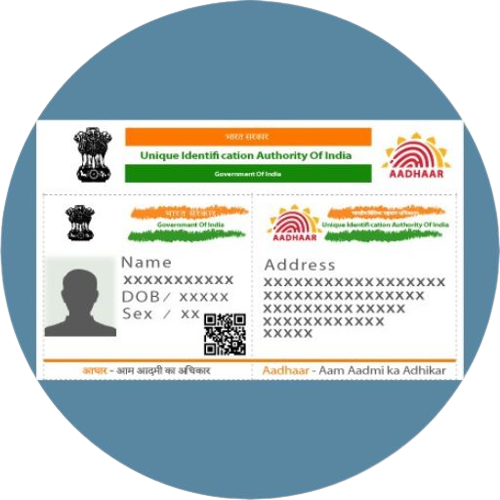
Aadhar Card
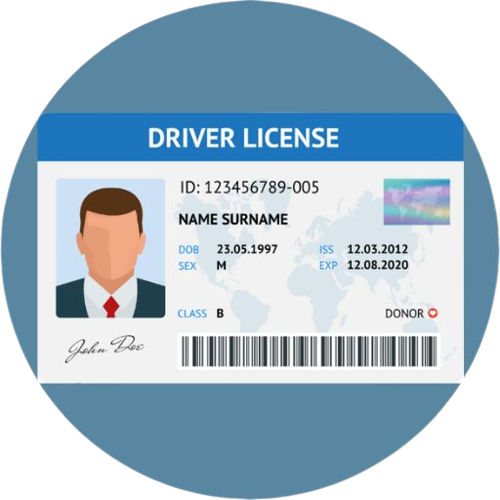
Driving Licence
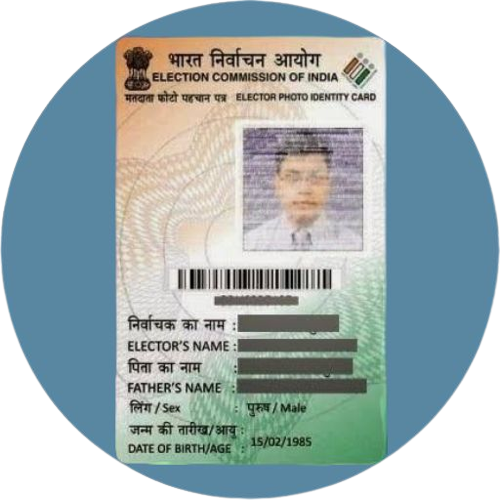
Voter ID Card
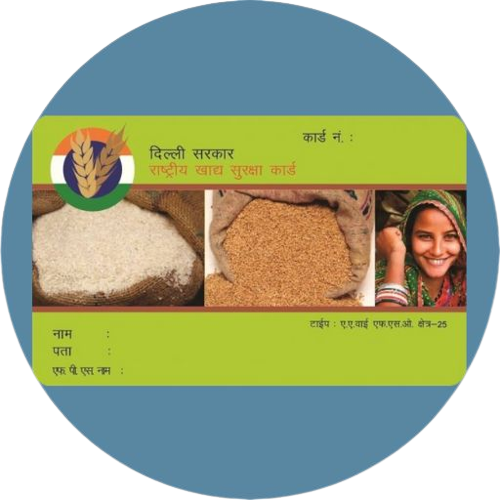
Ration Card

PAN Card
FAQ
FSSAI stands for Food Safety and Standards Authority of India.
FSSAI created the Food Safety Compliance System (FoSCoS), which was built utilising cutting-edge technology with the goal of providing a modern, one-stop pan-India IT platform for food safety regulatory needs. FoSCoS will also be integrated with other Government of India systems such as GST, PAN, MCA, and others to further simplify business procedures and ensure 360-degree business profiling.
The FSSAI Registration is the legal process by which all Food Business Operators (FBOs) in India can apply for a certificate stating that the food they sell is safe for human consumption.
The following categories of FoSCos Food licences are available based on the annual revenue of the food business:
- Basic FSSAI Registration – Annual turnover of less than Rs. 12 Lakhs
- State FSSAI License – Annual turnover between Rs. 12 Lakhs – Rs. 20 Crores
- Central FSSAI License – Annual turnover more than Rs. 20 Crores
The FoSCos Food Registration fee is determined on the category and duration of the Food License (1-5 years) chosen:
- Basic FSSAI Registration – Rs.1999 for 1 year
- State FSSAI Registration – Rs.2999 for 1 year
- Central FSSAI Registration – Rs.3999 for 1 year
Any kind of government identification, such as an Aadhaar card, ration card, voter ID card, PAN card, or driving licence.
The FSSAI FoSCos License is valid for one to five years. Following that, the FBO must apply for FSSAI License renewal.
The FSSAI has launched an online programme called the ‘Food Licensing and Registration System,’ or FLRS. It validates the eligibility of food-related enterprises based on their location and the type of process identified by the business owner. FLRS is introduced to allow food business enterprises to apply for FSSAI licences online.
Currently, The FLRS is used by 5 Regional Offices of FSSAI that are in New Delhi, Kolkata, Mumbai, Chennai, and Kerala.
FSSAI licence renewal can be done for one to five years and is required for all food businesses in India. You can contact our Food Licensing experts at 08069029400 to find out the status of your FSSAI licence renewal.
Yes, you must obtain a Central FSSAI licence for the main branch or head office, as well as State FSSAI licences for each state. To ensure a consistent food business operation across the country’s numerous states
Yes, you must obtain a Central License for the precise address specified in the Import Export Code (IEC). A FSSAI Central License is required for any import-export related business operation.
In the event that the FSSAI License holder dies, the FSSAI License can be transferred to the legal representative or any family member of the deceased holder. The legal representative or a family member must apply to the relevant Authority to change the licence to his or her name.
Yes. To sell homemade goods online, you must be registered with the FSSAI, especially if your company is tiny and your annual sales range from 0 to 12 lakhs.
If you neglect to renew a food licence, you must pay a fine of Rs. 100 every day within the license’s validity period. After that, your current food licence may be revoked, and you will have to submit an application for a new licence.
Yes. However, you must first get your Import Export Code (IEC). Subsequently, before beginning commercial activities, submit an application for an FSSAI Central License.
If you want to amend, modify, or update the information on the current FSSAI Certificate, you must apply for a modification and pay a cost equal to a one-year licence fee. Contact the FSSAI expert panel for free legal advice on the relevant issues.
In India, it is a requirement for all catering businesses. This licence is also required by the Indian Railways, the Defense forces, and the airports.


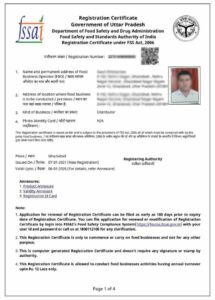
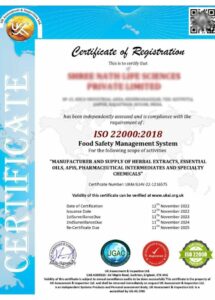
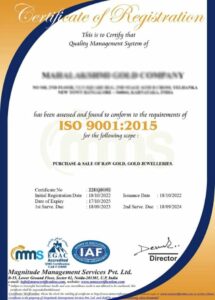


 Artistonk Media Solutions
Artistonk Media Solutions